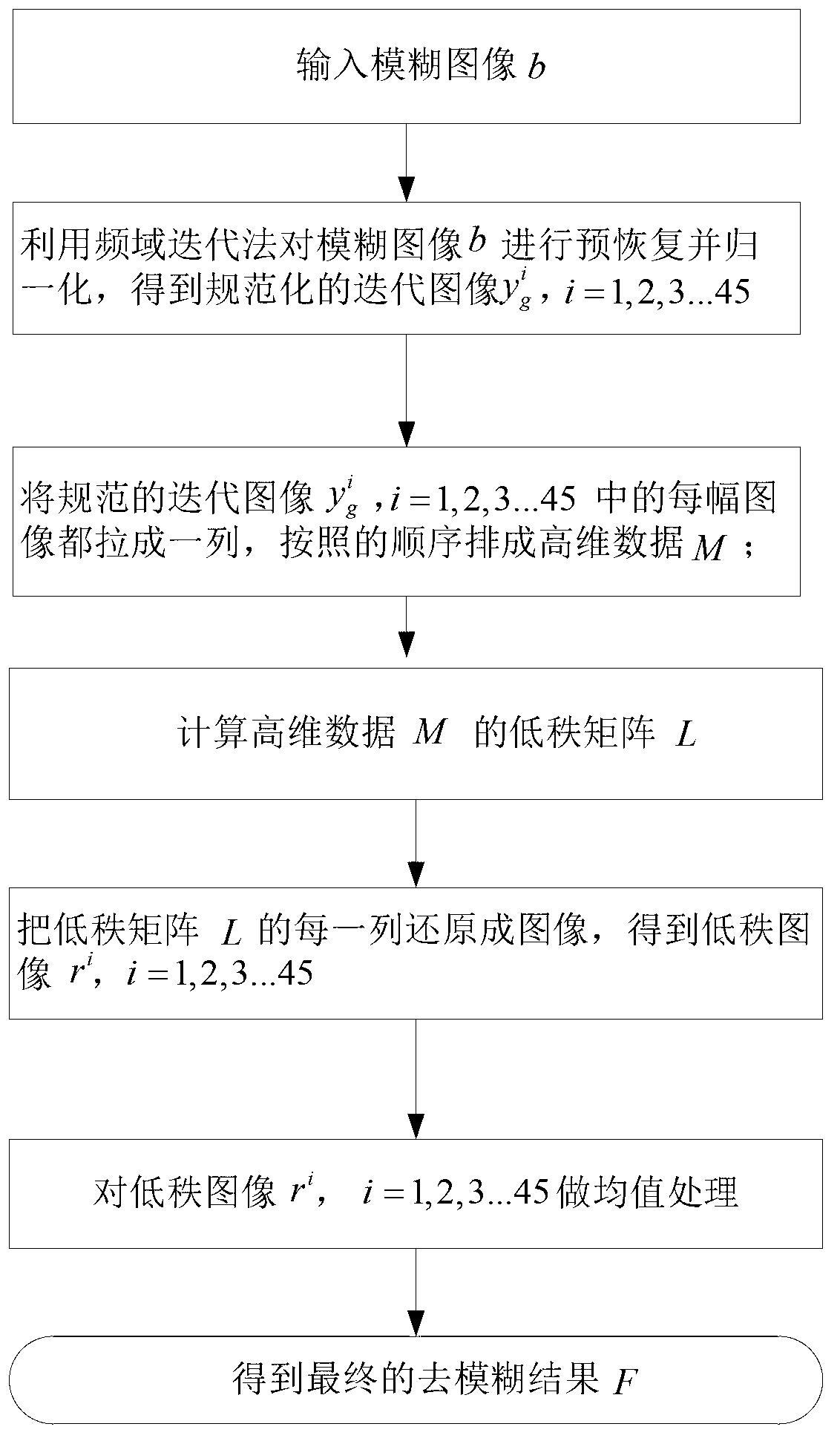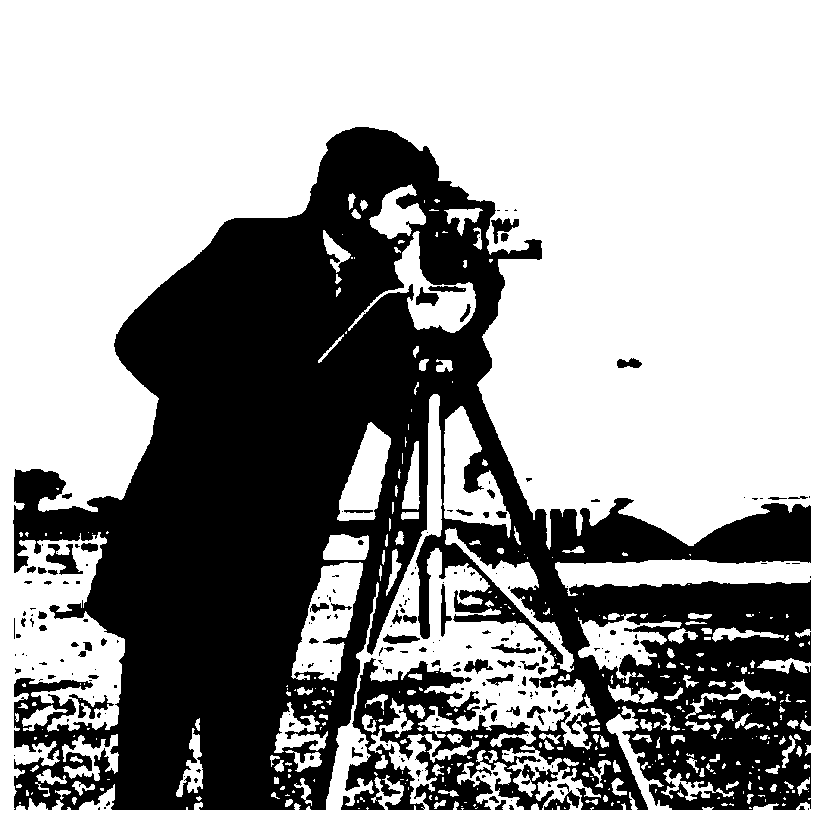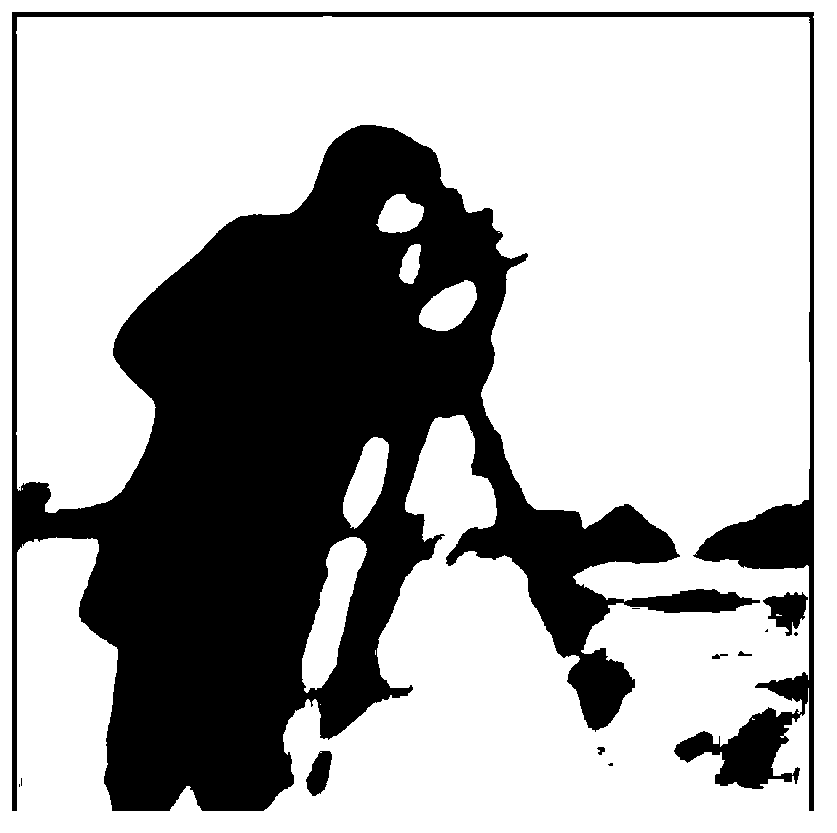Low-order decomposition method for blind deblurring of images
A blind deblurring and low-rank decomposition technology, applied in the field of image processing, can solve problems such as image sharpening, distortion, and inability to effectively use all image information, and achieve the removal of ringing effects, restoration of blurred images, and good deblurring effects Effect
- Summary
- Abstract
- Description
- Claims
- Application Information
AI Technical Summary
Problems solved by technology
Method used
Image
Examples
Embodiment Construction
[0030] refer to figure 1 , the specific implementation steps of the present invention are as follows:
[0031] Step 1, pre-restore the blurred image b to obtain an updated iterative image and the updated blur kernel
[0032] 1a) Set the iteration flag to i=1, the iteration maximum value to imax=45, and set the iteration image y i initial value of y 0 is the blurred image b, the blur kernel k i The initial value of k 0 is a Gaussian impulse function;
[0033] 1b) Calculate the iteration image y according to the following formula i :
[0034] y i = IFFT [ ( 1 - α ) P i - 1 + α XW * i - ...
PUM
 Login to View More
Login to View More Abstract
Description
Claims
Application Information
 Login to View More
Login to View More - R&D
- Intellectual Property
- Life Sciences
- Materials
- Tech Scout
- Unparalleled Data Quality
- Higher Quality Content
- 60% Fewer Hallucinations
Browse by: Latest US Patents, China's latest patents, Technical Efficacy Thesaurus, Application Domain, Technology Topic, Popular Technical Reports.
© 2025 PatSnap. All rights reserved.Legal|Privacy policy|Modern Slavery Act Transparency Statement|Sitemap|About US| Contact US: help@patsnap.com



